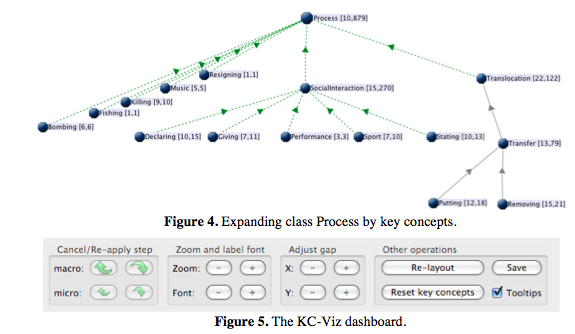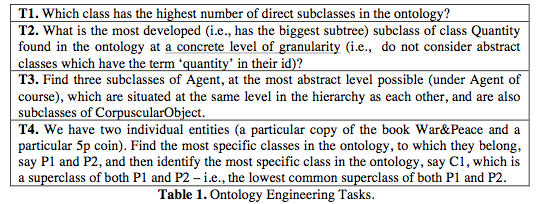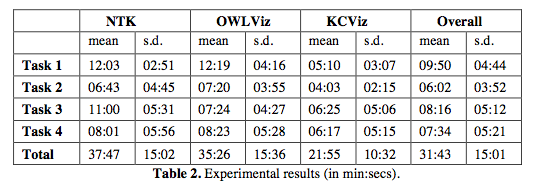On the one hand the information on display needs to be coarse-grained enough to provide an overview of the ontology… On the other hand, an exploration process needs to be supported, where the user can effectively home in on parts of the ontology, thus changing the level of analysis, while at the same time not losing track of the overall organization of the ontology.
Using the key concept extraction (KCE) algorithm, global and local importance of concepts is measured, allowing them to be displayed in the interface. This has the effect of providing a user of the ontology a way to gain an overview of its domain. The functionality can be particularly beneficial for new users of an ontology, a user attempting to choose from several competing ontologies, or a user creating new ontologies (and thus avoid replicating what already exists).
The authors conclude the KC-Viz system supports “information foraging” in an ontology. Thus it was found to be particularly helpful for first time users of an ontology. Users were able to learn the domain more efficiently than those who utilized the ontology navigation systems, Neon Tool Kit without visualization support or Protege with OwlViz plugin, during a controlled experiment.
The main positive subjective comments about the system were: “flexible support provided by KC-Viz to manipulate the visual displays; the abstraction power enabled by the KCE algorithm; and the value of the subtree summaries provided by KC-Viz.” The main negative comments were: “criticism of the tree layout algorithm used by KC-Viz, which does not allow display rotation and at times generates overlapping labels; the lack of transparency of the KCE algorithm, which does not allow the user to configure it, or to clarify why a node is considered more important than others; and the lack of integration between KC-Viz and reasoning/query support”
As the MCD project will include many thesauri and ontologies, it is likely we will need to generate overviews of the various domains covered. KC-Viz is a candidate technology to further this goal. We should take note of their findings that users benefited from an overview of key-concepts, and take into account the subjective user findings for the user-experience of the MCD user interface.







